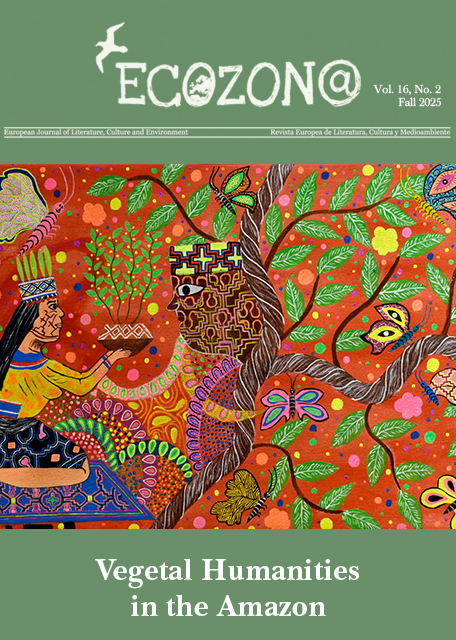Traces “We” Leave Behind: Toward the Feminist Practice of Stig(e)merging
DOI:
https://doi.org/10.37536/ECOZONA.2020.11.2.3487Parole chiave:
environmental humanities, waste, feminism, multispecies communities, AnthropoceneAbstract
As Serpil Oppermann has stated “the Anthropocene has come to signify a discourse embedded in the global scale vision of the sedimentary traces of the anthropos” (“The Scale of the Anthropocene” 2). In the following article we wish to revisit the practice of leaving traces through thinking with wastes as traces human beings leave behind and lands of waste that co-compose today’s naturecultures (Haraway, Companion Species). Situating our research in the context of Polish ecocriticism, we would like to think-with an art project by Diana Lelonek entitled Center for the Living Things, in which the artist gathers and exhibits waste that “have become the natural environment for many living organisms” (Lelonek). Following the ambivalent and chaotic traces of wastes, we offer a concept of stig(e)merging to rethink the “unruly edges” (Tsing 141-54) of capitalist wastelands. We fathom stig(e)merging as a feminist methodology that relies on reacting to changes and alterations in the milieu, as well as the actions and needs of others, and on participating in the common work of reshaping the un/wasted world together with them.
Downloads
##submission.downloads##
Pubblicato
Fascicolo
Sezione
Licenza
Authors who publish with this journal agree to the following terms:
a) Authors retain copyright and grant the journal right of first publication with the work simultaneously licensed under a Creative Commons Attribution License that allows others to share the work with an acknowledgement of the work's authorship and initial publication in this journal (CC BY-NC for articles and CC BY-NC-ND for creative work, unless author requests otherwise.
b) Authors are able to enter into separate, additional contractual arrangements for the non-exclusive distribution of the journal's published version of the work (e.g., post it to an institutional repository or publish it in a book), with an acknowledgement of its initial publication in this journal.
c) Authors are permitted and encouraged to post their work online (e.g., in institutional repositories or on their website) prior to and during the submission process, as it can lead to productive exchanges, as well as earlier and greater citation of published work (See The Effect of Open Access).










